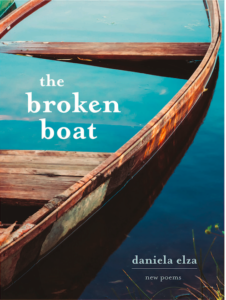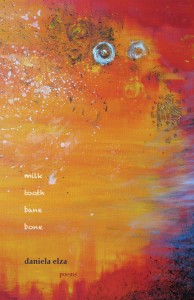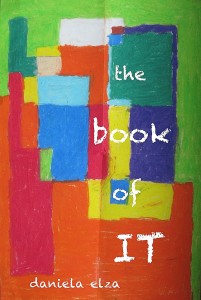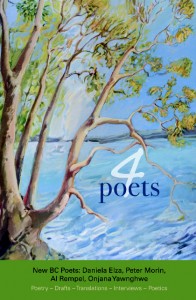“the new poetry”
Posted by Daniela Elza on Feb 13 2010
Read an article on poetry from almost a century ago, titled: Is there a national spirit in “The New Poetry” of America? by Amy Lowell.
You can find it in The CraftsmanVolume xxx,number 4, from July 1916.
It feels spooky and ghostly to be reading about poetry from so long ago in something as fleeting as a monthly publication. I wonder what the circulation of The Craftsman was?
Here are three quotes/thoughts that caught my attention, questions that have been rolling around in the surf of the poetic field, and hopefully each poet contemplates anew, thoughts that want to roll around in my head till they are as smooth as pebbles:
“Until recently the higher forms of art have been compressed in the bonds of theory. This, and that and other, were to be done, and different things were emphatically not to be done; and for the simple reason that our English cousins, expressing themselves, have never done them. That we were no longer like these same cousins in our lives and our thoughts was not taken into consideration. ”
“The New Poetry” is often understood to mean “free verse”… The whole New Movement in poetry is a matter of substance rather than of form. Form is merely an adjunct, but because form is more easily noticed than content, it is principally on the question of form that people have been moved to argue.” (p.342)
“The New Poet sees a world in which he is passionately interested, but in which he is only one of many factors. To portray that world as he sees it is his concern.
… It is a passionate desire for truth, and a dispassionate attitude toward whatever his search for truth may bring him. He records, he does not moralize. He holds no brief for or against, he merely portrays.
…Because the artist speaks no moral, it does not mean that non exists. Lives carry their own moral with them. The world of “The New Poetry” is like the world of reality, the morals are there, but it is for us the readers, to pronounce them.” (p.343)
While you are there you can also read five more poems, namely Broadway’s Canyon by John Gould Fletcher, The Vanishing Red by Robert Frost, The Laughters by Louis Untermeyer, Cool Tombs by Carl Sandberg, Winter’s Turning by Amy Lowell, amongst pieces on the art of garden making, American girl education, new Hopi architecture, an all-cement chicken house. Not a bad deal for only 25 cents an issue, $3 subscription for the year.
If we were to speak of the new poetry today, what will that be? Or if we were to consider these thoughts today, how would we as poets, respond?





February 14th, 2010 at 12:19 am
I like that second quote the most, the one about substance and form. I definitely disagree that “form is merely an adjunct” – form and substance are intimately intertwined. With that caveat in mind, I do, however, agree with the last part:
“because form is more easily noticed than content, it is principally on the question of form that people have been moved to argue.”
To modernize it, I would add “and to teach” at the end.
February 14th, 2010 at 11:06 am
It was good to see the reference to Amy Lowell and discussion of the “new poetry.” I deal with this period in my new book, “Amy Lowell Among Her Contemporaries,” available at amazon.com, bn.com, and iUniverse.com. I’m also writing a biography of Amy Lowell that is funded by the National Endowment for the Humanities.
February 19th, 2010 at 12:53 pm
Thanks, I should check out the book on Amy Lowell, and good luck with the writing of the biography.
Rob, yes, I also feel (not just something I know:-) that the form and the content are intertwined. And it is frustrating when the form comes to the fore in reviews. It is also interesting how we go through these phases/fashions, like “no rhyming poetry please” etc.
And also how new forms emerge. Who will embrace and recognize a new form? The sonnet at one point was a new form. This tension between what we are used to and what is new.
Then when I read Lao Tze I am less likely to think of the form, and more likely to be steeped in the thought and poetry of it.
I really like the connection she makes between poetry and knowing, “the passionate desire for truth”, which connects poetry to philosophy. A link I believe poetry and philosophy should aim to re-establish. Or perhaps acknowledge. And of course these words are slippery, I am already feeling like I am sliding down a mud bank.